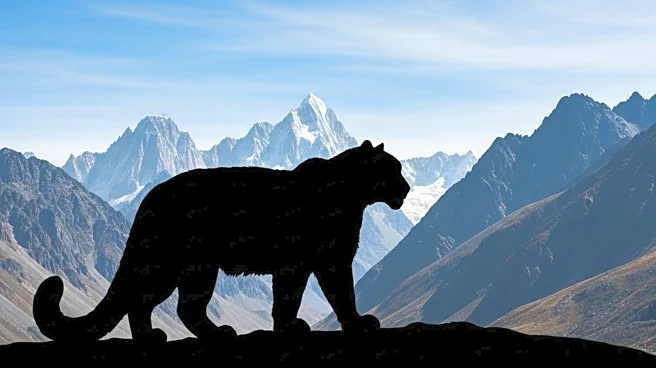What is the story about?
What's Happening?
Russian President Vladimir Putin is on a state visit to Tajikistan, engaging in meetings with leaders from former Soviet nations. This visit comes amid ongoing Western sanctions against Russia due to its military actions in Ukraine. Tajikistan, a member of the International Criminal Court (ICC), has not acted on the ICC's warrant for Putin's arrest for alleged war crimes. Despite the warrant, Putin faces no risk of arrest in Tajikistan, which maintains close political, economic, and military ties with Russia. Human Rights Watch has urged Tajikistan to arrest Putin, highlighting the suffering of victims of Russian forces in Ukraine.
Why It's Important?
The visit underscores the geopolitical dynamics in Central Asia, where Russia seeks to strengthen ties with former Soviet states amidst international isolation. Tajikistan's decision not to arrest Putin reflects the complex interplay between international law and national interests. This situation highlights the limitations of the ICC, which relies on member states to enforce its warrants. The visit also illustrates Russia's strategic efforts to maintain influence in the region, which could impact regional stability and international diplomatic relations.
What's Next?
Putin's visit may lead to further discussions on economic and military cooperation between Russia and Central Asian countries. The broader meeting of the Commonwealth of Independent States could result in agreements that bolster Russia's presence in the region. International reactions, particularly from Western nations, may focus on the implications of Tajikistan's decision not to arrest Putin, potentially affecting diplomatic relations and future ICC actions.
Beyond the Headlines
The visit raises questions about the effectiveness of international legal mechanisms in holding leaders accountable for alleged war crimes. It also highlights the challenges faced by international organizations like the ICC in enforcing justice when geopolitical interests are at play. The situation may prompt discussions on reforming international law to better address the complexities of modern geopolitical conflicts.

















